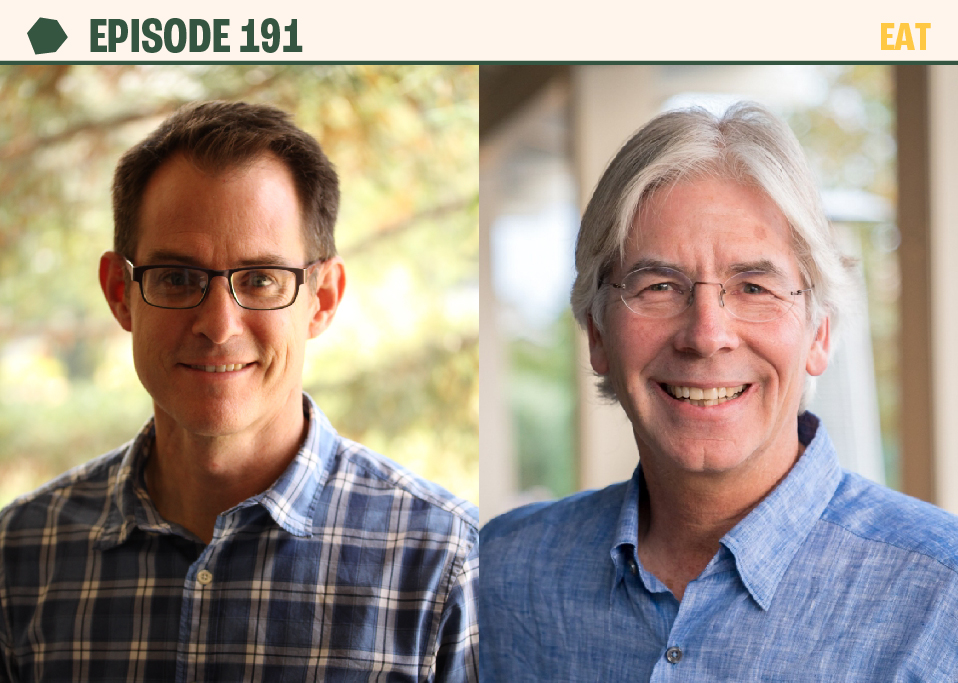In Episode #191, I sat down with Stanford University Professors Dr Christopher Gardner and Dr Justin Sonnenburg to talk about fermented foods, fibre, gut health, and immunity. This conversation was organised following the results of their latest randomised controlled trial, ‘gut-microbiota-targeted diets modulate human immune status’, which was published in Cell Press in 2021.
Listen to this episode to find out about what defines a healthy microbiome, what we can learn from studying the microbiomes of traditional populations such as the Hadza tribe, and so much more. Justin and Christopher also share the mission behind their study of fibre and fermented foods, what they found (including their findings regarding fibre intake and the effectiveness of probiotics), and the key takeaways.
For more from Christopher Gardner, check out Episodes #145, #167, and #228. For more from Justin Sonnenburg, check out Episode #202.
The best way to support the show is to use the products and services offered by our sponsors. To check them out, and enjoy great savings, visit theproof.com/friends.
Enjoy, friends.
Simon
More about Justin Sonnenburg, PhD:
Dr Sonnenburg is an associate professor in the Department of Microbiology and Immunology at the Stanford University School of Medicine, where he studies the gut microbiota in health and disease and co-directs the Center for Human Microbiome Studies. He and his wife Erica are the authors of the book The Good Gut: Taking Control of Your Weight, Your Mood, and Your Long-Term Health. Their laboratory at Stanford develops and employs diverse technologies to understand the basic principles that govern interactions within the intestinal microbiota and between the microbiota and the host. An ongoing objective of the research programme is to devise and implement innovative strategies to prevent and treat disease in humans via the gut microbiota. Current pursuits include genetic engineering commensal bacteria to enable therapeutic delivery within the gut and understanding the health impact of microbiome change that has occurred during industrialisation. Justin conducted his PhD in biomedical sciences at the University of California, San Diego, in the laboratory of Ajit Varki. His postdoctoral work was conducted at Washington University in Saint Louis, Missouri, in the laboratory of Jeffrey Gordon. He has received an NIH Director’s New Innovator Award and Pioneer Award. He serves on several scientific advisory boards and is a co-founder of Novome Biotechnologies.
More about Christopher Gardner, PhD:
Dr Gardner is the Rehnborg Farquhar professor of medicine at Stanford, the director of Stanford Prevention Research Center’s (SPRC) Nutrition Studies Group, and the director of the SPRC postdoctoral research fellow training program. His primary research focus for the past decade has been randomised controlled nutrition intervention trials (soy, garlic, antioxidants, ginkgo, omega-3 fats, vegetarian diets, weight loss diets), testing the effects of these on chronic disease risk factors that have included blood cholesterol, weight, inflammatory markers, and the microbiome. His research interests have recently shifted to two new areas: The first is helping individuals make healthful improvements in diet through motivators beyond health, linking to ongoing social movements around animal rights and welfare, climate change, social justice, and their relationships to food. The second is to focus less on trying to improve individual behaviours around food and more on a food systems approach that addresses the quality of food provided by universities, worksites, hospitals, schools, etc., using a community-based, participatory research approach and taking advantage of the many complementary disciplines represented on the Stanford campus, such as medicine, business, education, law, and earth sciences.
Additional resources:
- The new study on fermented foods, fibre and the immune system
- Dr Gardner on Twitter
- The Sonnenburg lab on Twitter
- Sonnenburg Lab website
- The Good Gut by Drs Justin and Erica Sonnenburg







